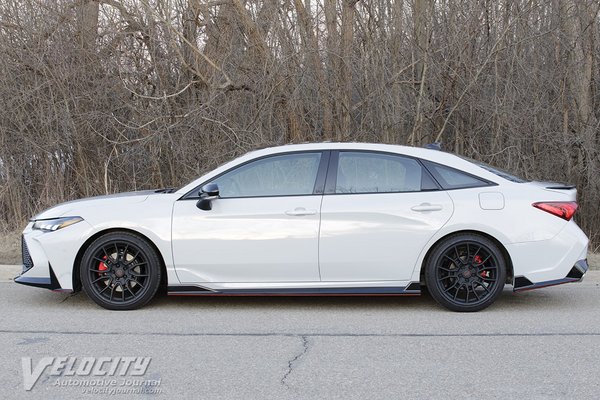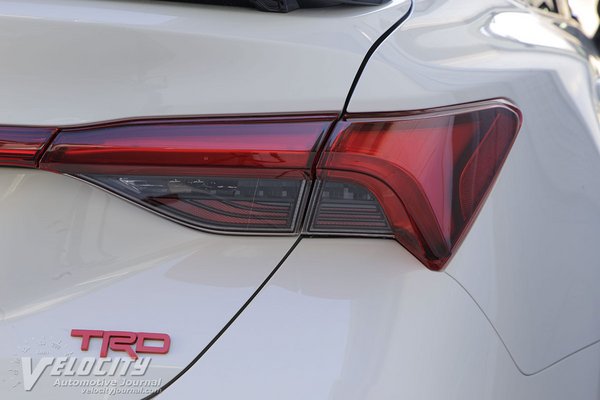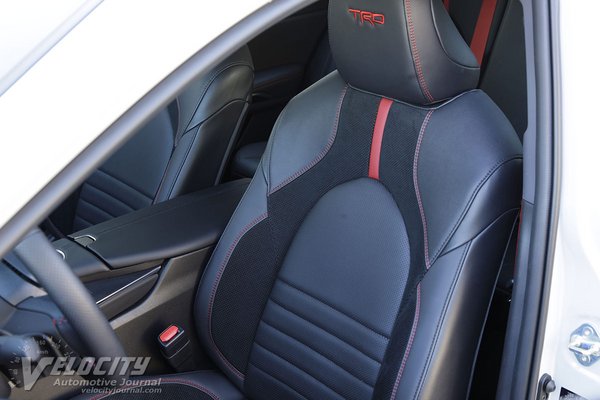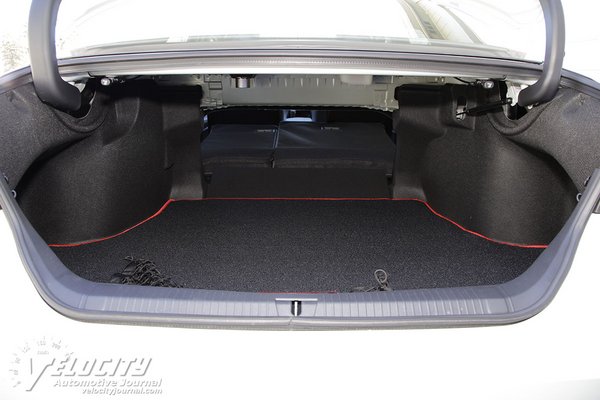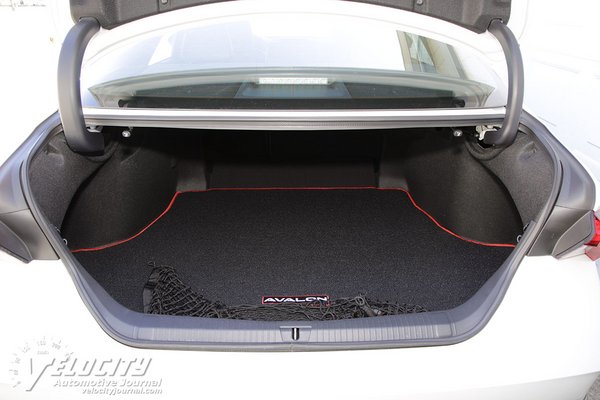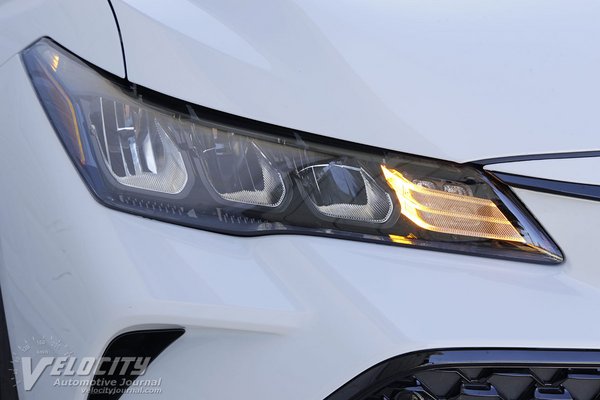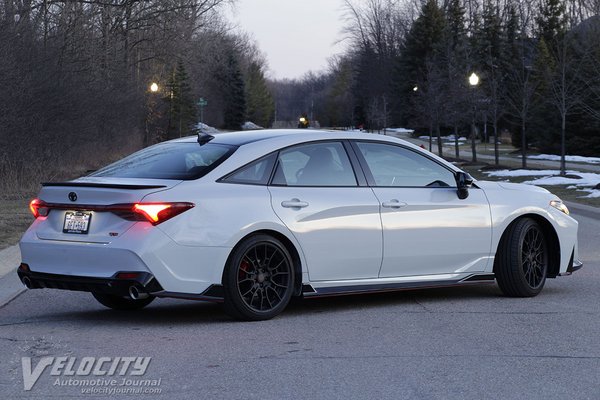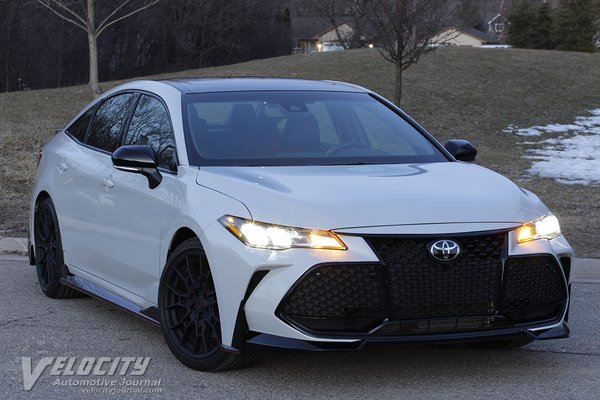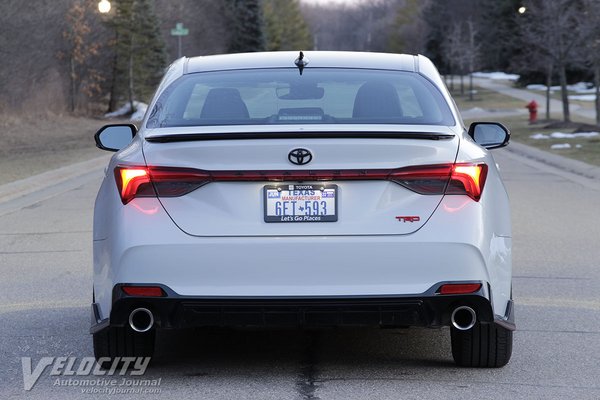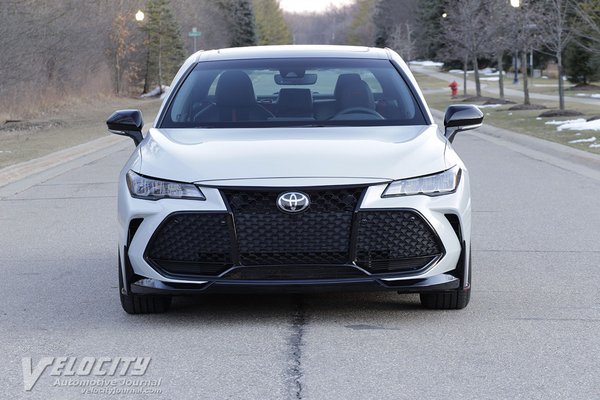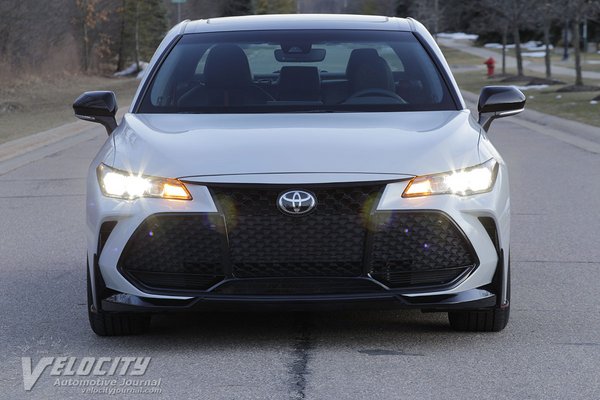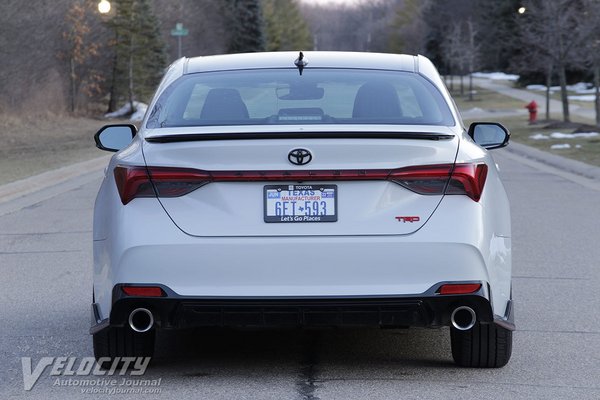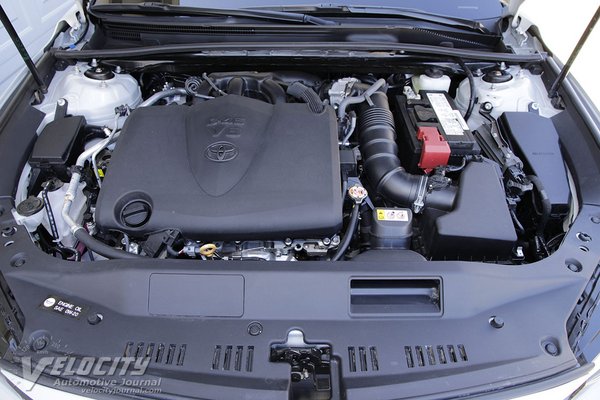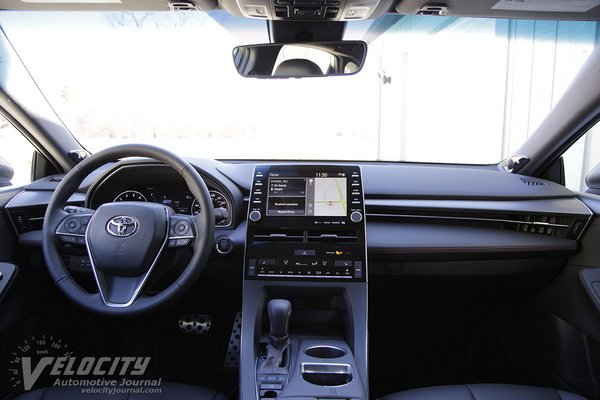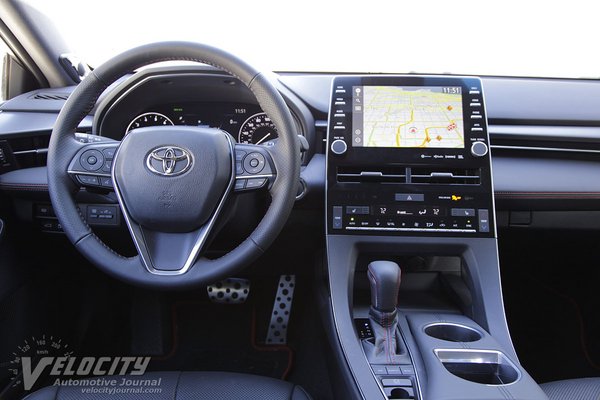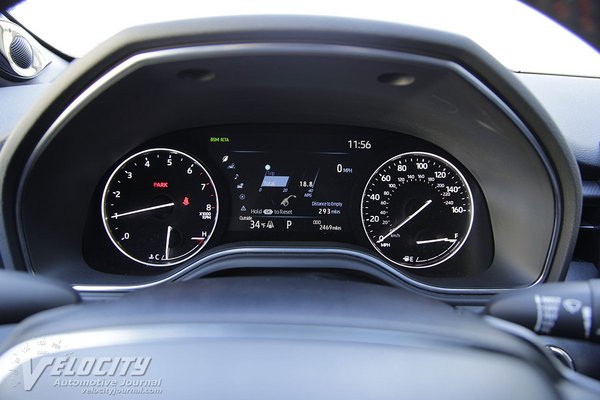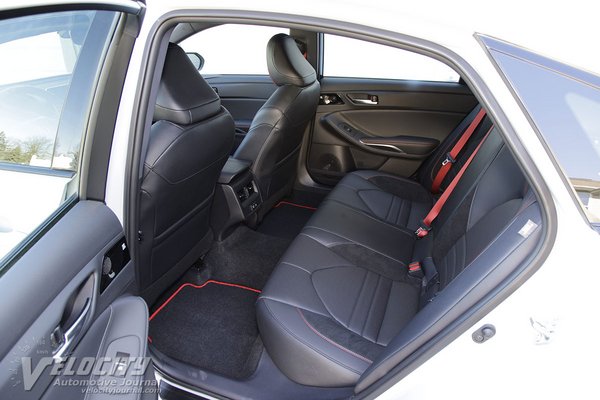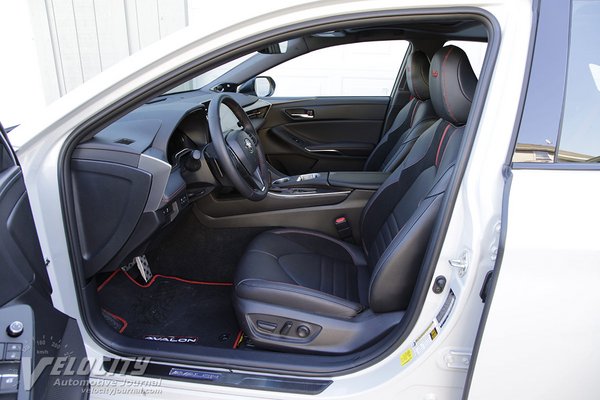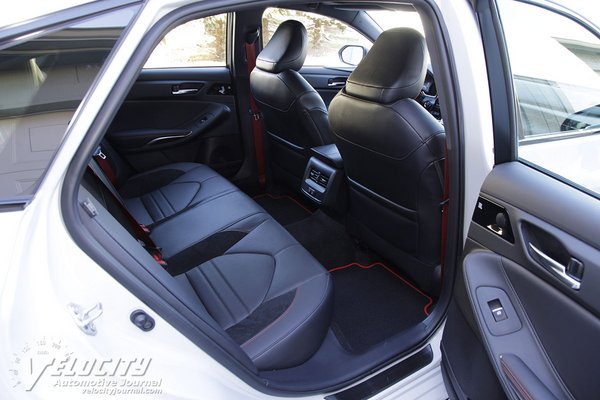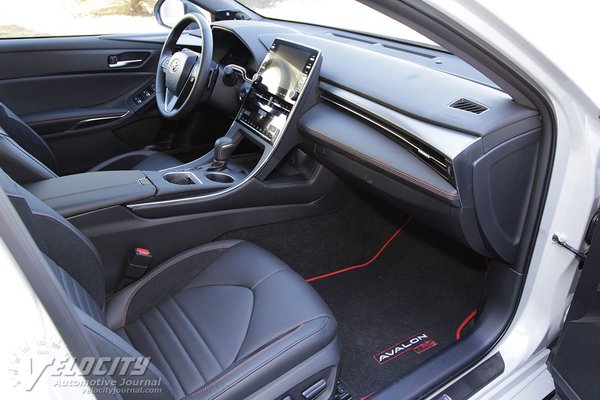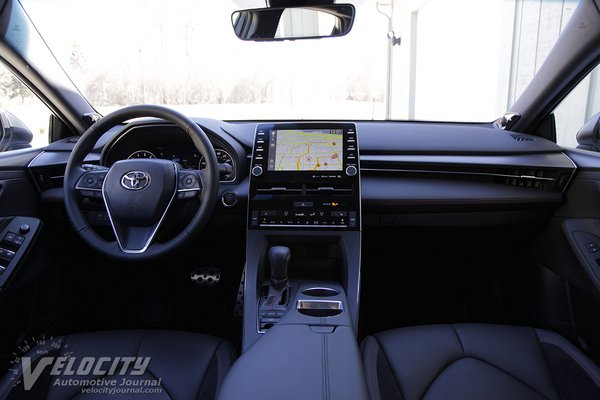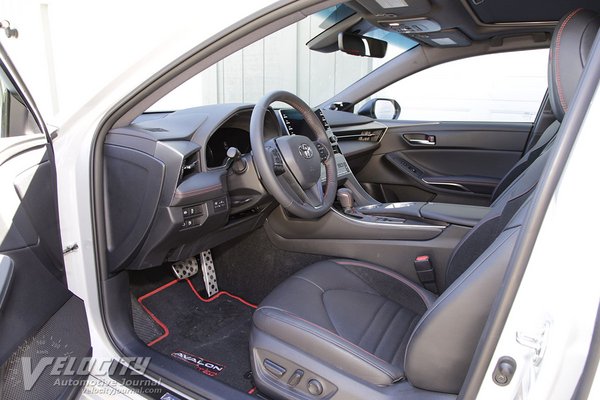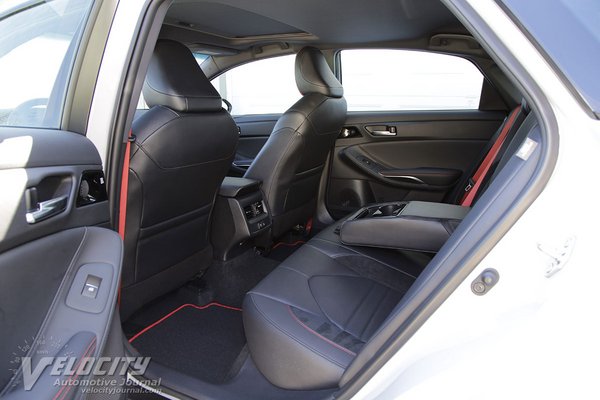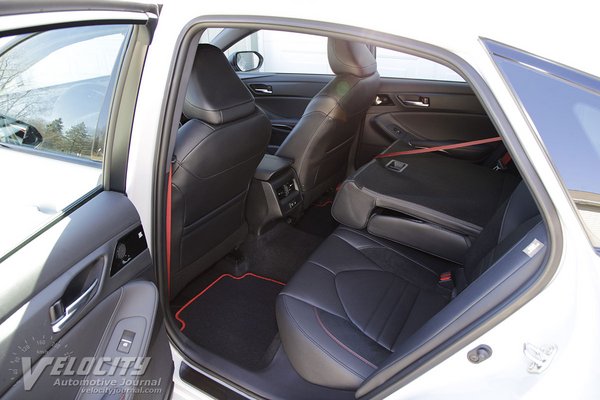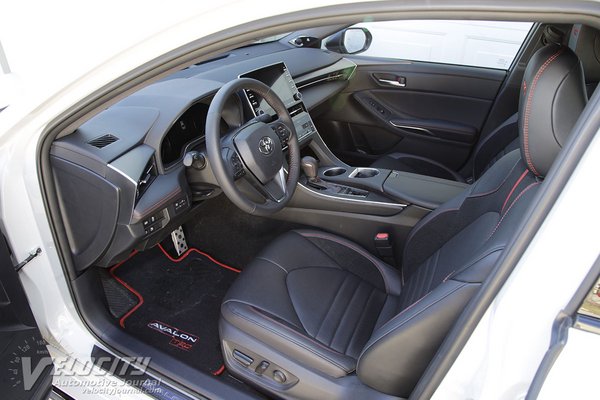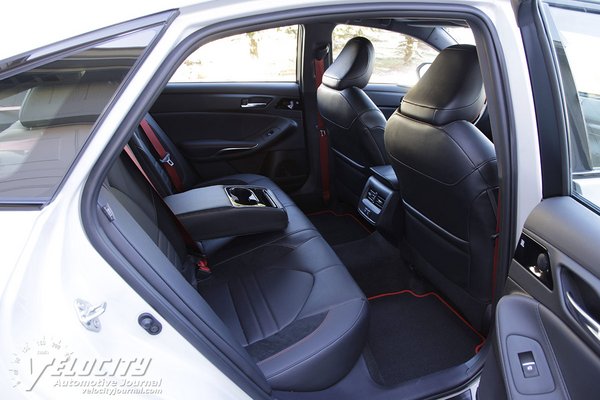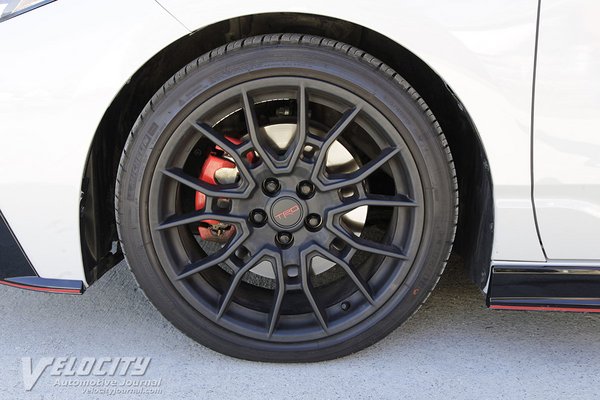2021 Toyota Avalon TRD Review
09/04/2021
Shahed Hussain
Synopsis
Review
Since its introduction in the late 1990s, the Avalon has built a reputation as an anonymous, comfortable sedan. For the current generation model, Toyota completely rethought its styling and driving dynamics. The new Avalon TRD joins the Camry TRD as the most sporting model in their respective lineups. Most of the Avalon's American and Asian midsize competition have disappeared, leaving only the Nissan Maxima and Acura TLX as its direct rivals.
Aside from the TRD, four other Avalon variants are available: XLE ($35,650), XSE Nightshade ($38,150), Limited ($41,950), and Touring ($42,350). The XLE, XSE, and Limited can be ordered as hybrids at a $1,000 premium over the gas-only models. All-wheel drive is also an option on the XLE and Limited, but only with the 205-hp 2.5L inline-4. Our tested Avalon TRD ($42,875) was optioned with the Premium Audio Package ($1,720), illuminated door sills ($379), rear bumper applique ($69) and All-Weather Package ($259). The total MSRP plus delivery fee ($995) added up to $46,297. Significant standard or optional equipment include a 14-speaker JBL audio system, moonroof, 19-in. TRD matte black alloy wheels, TRD cat-back dual exhaust, TRD aero kit, 9-in. touchscreen, navigation, Android Auto, Apple CarPlay, heated front seats, and LED headlights. Notable safety technologies consist of dynamic radar cruise control, bird's eye view camera, intelligent clearance sonar, and rear cross-traffic braking.
The Avalon now has three powertrain options: 2.5L inline-4, 2.5L Hybrid and 3.5L V-6. The TRD is powered by the all-aluminum 3.5L V-6 driving the front wheels. Equipped with double-overhead cams, direct and port fuel injection (D4S) plus variable valve-timing (VVT-i), the V-6 is rated at 301-hp @ 6,600 RPM and a torque output of 267 lb.-ft @ 4,700 RPM. An 8-speed automatic is coupled to both the inline-4 and V-6. In the V-6, the transmission gearing is overdrive in both seventh (0.800:1) and eighth (0.673:1, mated to a 2.561:1 axle ratio. Fuel consumption is estimated at 22/31 MPG (city/hwy.). We averaged 23-24 MPG in combined highway and urban routes.
Based on Toyota's TNGA platform (same as the Camry), the Avalon shares a similar suspension design. In front are MacPherson struts, coil springs and a stabilizer bar. At the rear is a multi-link setup with coil spring and a stabilizer bar. TRD, XSE Nightshade and Touring models get larger 27 mm diameter front and rear stabilizer bars. The TRD also has bigger brakes than other Avalons: vented 12.9-in. dia. discs in front and 11.6 in. dia. solid discs at the rear. Matte black 19-in. diameter alloy wheels (exclusive to the TRD) are shod with P235/40R19 Michelin all-season tires (summer tires are optional). According to Toyota, the TRD wheels reduce unsprung weight by 18 lbs. Other upgrades include thicker underbody braces for higher torsional rigidity, plus TRD-specific coil springs and dampers; the coil springs lower ride height by 0.6-in. for better handling. Steering is rack-and-pinion with electric power assist. Avalon curb weights range from 3,570-3,715 lbs.; the TRD weighs in at 3,655 lbs.
Our TRD's mostly black interior surfaces had contrasting polished and textured aluminum accents, along with aluminum brake and accelerator pedals. The gauge cluster consists of an analog tachometer and speedometer plus smaller dials for fuel and coolant temperature. A configurable multifunction digital display in the cluster shows various vehicle settings. The leather-wrapped steering wheel houses secondary audio, phone and cruise control buttons. Paddles behind the steering wheel enable gear shifts on demand. A 9-inch touchscreen controls the infotainment system, along with buttons for frequently used functions. We appreciated the convenient knobs for volume and radio tuning. Wireless mobile phone charging is available via the Qi charging pad on the center console. Dual USB ports and a 12V outlet deliver power to portable electronics. The climate control system also uses pushbuttons for direct control of settings. Behind the console shift lever are drive mode buttons to adjust powertrain modes (Eco, Normal, and Sport).
The Avalon TRD seats are covered in perforated SofTex simulated leather and Ultrasuede; genuine leather trim is standard in the Limited model only. Both driver and front passenger seats have 8-way power adjustments; the driver's seat also gets 2-way lumbar support. We found the front seats to be exceptionally comfortable with excellent lateral support. Front headroom is acceptable, but occupants taller than 6 ft. will need to recline the seat for clearance. Rear passengers benefit from above average legroom, but only occupants shorter than 6 ft. will consider headroom adequate; the center position is best suited for children due to the constricted headroom and rigid seatback. Amenities for rear seat passengers include dual vents, and two USB charging ports. The rear seats fold down for added cargo capacity.
Compared to other Avalons, the TRD's "track-tuned" springs and dampers deliver a firmer ride than the adaptive variable suspension (AVS) in the Touring model. Although the TRD suspension never feels harsh, it does get jittery over patched road surfaces. We preferred the adjustability of the AVS-equipped Avalon Touring for its more compliant ride. An advantage of the stiffer suspension tuning is minimal body roll and understeer: Toyota claims 44% higher roll stiffness in front and 67% higher in the rear. The TRD's larger diameter all-disc brakes deliver quick, sure stops with a firm, progressive pedal.
Although many other brands have replaced normally-aspirated sixes with turbo inline fours, Toyota continues to use its 3.5L V-6 as the Avalon's top powerplant. The V-6 cranks out ample torque at low and midrange RPM, aided by the seamless shifts of the 8-speed automatic. We rarely needed to use the paddle shifters, since the transmission downshifts on demand. Engine noise is subdued and the V-6 revs eagerly to its 6,600 RPM power peak. Of the three powertrain modes, we preferred the Normal and Sport settings for the sharper throttle response. At highway speeds, road and tire noise are relatively low, considering the TRD's mission as a sport sedan. Other Avalon models like the Touring are subjectively quieter, and are superior alternatives for extended road trips.
The Avalon is without question the best sedan in Toyota's model range (excluding Lexus). We do think that the TRD is somewhat expensive, considering that the XSE Nightshade or Touring offers nearly the same driving experience for less money. Value-conscious enthusiasts should probably opt for the XSE Nightshade, and the less sport-oriented customers may consider the Touring a better alternative. But for the enthusiasts looking for a serious sport sedan from Toyota, the Avalon TRD is for you.

